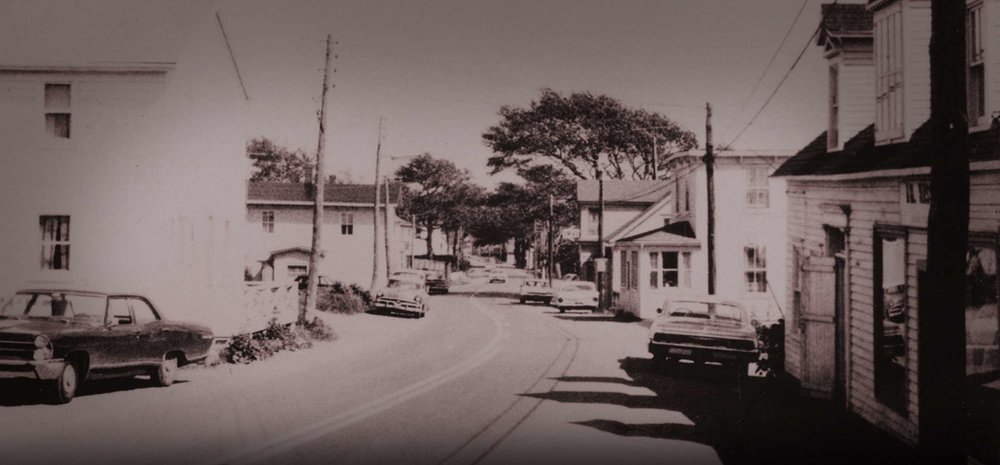What is a Memorial Service?

What is a Memorial Service?
Unlike a traditional funeral, a memorial service is a gathering where a casket is not present (although the urn with the cremated remains may be on display). A memorial service can be held weeks or even months after the death.
A memorial service can be held in a church, the funeral home, or a community hall. There is usually music, selected readings, and a eulogy. Memorial services can be further personalized as a celebration-of-life.
Memorial Service Ideas
Our experience has shown us that many of today's families want more meaning than a traditional funeral. This can be done by bringing more of the personality and lifestyle of the deceased into the arrangements. By displaying photographs or staging the event around a favorite pastime, a memorial service can become more personal and meaningful.
If a personalized memorial service suits the needs of your family, we suggest you consider the following questions:
- What did your loved one like to do?
- What was he or she like as an individual?
- What was their profession and how did that shape their life?
- Was your loved one spiritual?
- Was he or she proud of their cultural or ethnic heritage?
We're Here to Advise, Assist, and Guide You
Using the above five questions as our guide, we will spend the time to help create a fitting memorial service for your loved one. Please call us at 902-226-3300 to learn the details of our memorial service planning process.

Why a Memorial Service?

Rather than opting to do things "the same old way", many families today want to celebrate the life of a loved one. Many funeral service professionals see this change as one of the many contributions to social change made by 'Baby Boomers'. The National Funeral Directors Association notes, "As baby boomers age and find themselves having to plan funerals for loved ones and themselves, they are making funeral choices based on values that are different than previous generations. Baby boomers see funerals as a valuable part of the grieving process and are seeking ways to make them meaningful." If you too desire to make the funeral for a loved one more engaging and personally meaningful, a celebration-of-life may be the perfect concept to build on.
How Does a Celebration-of-Life Differ from a Traditional Funeral?
As mentioned in the page Traditional Funeral Services, there are four basic components which make up the conventional approach to funerals:
- A Visitation
- The Funeral Service
- A Committal Service
- The Funeral Reception
A traditional funeral then is a series of events; it's a ritualized process where the deceased, and the attendees, pass from one social status to another; a process where the torn fabric of a family and community is repaired. According to the online article "Six Characteristics of Helpful Ceremonies", by William Hoy, Director of Grief Connect, this is done by including:
- Symbols of shared significance intended to communicate beyond words
- Ritual actions shared by a group of individuals
- Gathered people providing comfort to one another
- Connection to heritage through recognized readings
- Increased physical contact between attendees provide comfort
- Witnessing the transition of the body through burial or cremation
In knowing these characteristics, you can design a celebration-of-life–as unique as the life of your loved. Learn how to create a Celebration of Life.

Celebrations-of-Life

Many families today want a service which celebrates the life of their loved one. We introduce them to the concept of a celebration-of-life, and provide support in designing a celebration-of-life that is as unique as the life of their loved one.
We always enjoy working together with families in planning a celebration-of-life for their loved one. While it can be a challenge to put together an event that both pays tribute to and celebrates the life and spirit of, a complex individual; it's also one of the most rewarding things any one of us can do for someone we've loved and lost.
Sarah York, opens her beautifully-crafted book, Remembering Well, with the very personal story about how her family chose to pay tribute to her mother. "My mother died in April 1983. . . she didn't want a funeral. 'Get together and have a party,' she had said when the topic was allowed to come up." However, she was quick to tell readers that the survivors did not honor the request. "We needed the ritual. We needed to say good-bye, but we also needed a ritual that would honor her spirit and would be faithful to her values and beliefs."
When Ms. York acknowledge the position of her family; that they needed not a party but a ritual; she teaches us all something important: the celebration-of-life events we plan with families should be shaped as much by their own emotional and spiritual needs, as their desire to celebrate the life lived.
While celebrations-of-life are not burdened by social expectations—they can be pretty much anything you want them to be—it's important to realize that the event you're planning should meet the emotional needs of the guests. So, think about exactly who will be there, and what they're likely to want or need. Then, bring in those unique lifestyle and personality characteristics of the deceased; perhaps add live music or refreshments, and you've got the beginnings of a remarkable celebration-of-life.
Celebrations-of-life are intended to lift everyone's spirits by focusing on positive memories. And as we wrote in the above introduction, if you'd like to learn more about celebrations-of-life, we invite you to contact us with any questions.
Sources:Remembering Well: Rituals for Celebrating Life & Mourning Death, Sara York

Funerals vs. Celebrations of Life

It's interesting; funerals and celebrations-of-life have much in common, yet they often appear very different. Each is a ceremony; a gathering of people who share a common loss. It's just that one is more rooted in tradition, while the other is the result of recent changes in social values. But both serve to do three things:
1. Help the bereaved family, and their community, publically acknowledge the death of one of their own.
2. Support the grieving family by surrounding them with caring friends, co-workers, and neighbors.
3. Move the deceased from one social status to another.
Yet they achieve those things in very different ways. First, let's take a closer look at what most of us commonly see as very traditional funerals.
The Funeral
It's not surprising funerals have been around for a very long time. Composed of three activities, the visitation, the funeral service, and the committal service, performed at the graveside; this funeral is the one we'd easily recognize from contemporary literature and film.
The Visitation: Held prior to the funeral, often the night before but sometimes on the same day, the visitation (or viewing) is a time when people come to support the family and, more importantly, pay their respects to the deceased. This often involves stepping up to the casket to view the body; either in the company of a member of the surviving family or on your own.
The Funeral Service: Commonly held in the funeral home or church, the traditional funeral service is led by an officiant of one kind or another; most commonly a pastor or the funeral director. This individual follows a very predictable funeral order of service which includes the singing of hymns; and invocations, Bible recitations, Scripture readings, and prayers led by the officiant.
The Committal Service: This takes place at the cemetery, after a slow and respectful automobile procession from the place where the funeral was held. The committal service ends when the casketed remains are lowered into the ground, and final prayers are said.
If you'd like to know more about the history of funerals in the United States, you may like to visit the website of the National Museum of Funeral History. But for now, it's enough to know that a funeral service traditionally has these three distinct components. Now let's look at a celebration-of-life service.
Celebrations-of-Life
Author Barbara Kingsolver, in her book The Poisonwood Bible, wrote “To live is to be marked. To live is to change, to acquire the words of a story, and that is the only celebration we mortals really know.” We think this reflection is at the heart of a celebration-of-life. While a funeral, as we've described it above, has more to do with the orderly and often spiritually-defined; a celebration-of-life is more concerned with telling the story of the deceased. Celebrations-of-life are just that: a time people come together more to celebrate the unique personality and achievements of the deceased than to merely witness or mark the change in their social status.
Celebrations-of-life are similar to memorial services, which can be described as a hybrid event; combining the flexibility of a celebration-of-life with many of the activities of a traditional funeral order-of-service.
There's more room for creativity in a celebration-of-life than a funeral. Since celebrations-of-life are commonly held after the individual's physical remains have been cared for through burial or cremation; there is much more time available to plan the event. And without doubt, this allows you to make better decisions about how you'd like to celebrate the life of someone you dearly loved.
Are You Undecided? Turn to Us
We've got years of experience listening, brainstorming, and advising families how they can best pay tribute to a beloved family member. That means we're the perfect people to help you decide between a funeral and a celebration-of -life. We'll explore your funeral service options with you in detail, taking all the time you need.
In the book Chocolat, by Joanne Harris, you'll find this fundamental truth: “Life is what you celebrate. All of it. Even its end.” As funeral professionals we help families express reverence for life. Let us do that for your family. Call our funeral home at 902-226-3300 to speak with a member of our staff.
Sources:Barbara Kingsolver, The Poisonwood Bible
Joanne Harris, Chocolat




